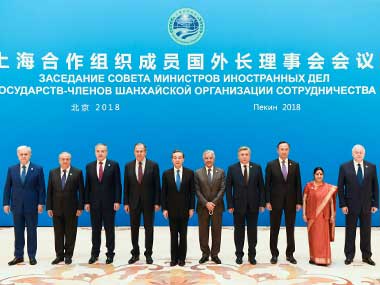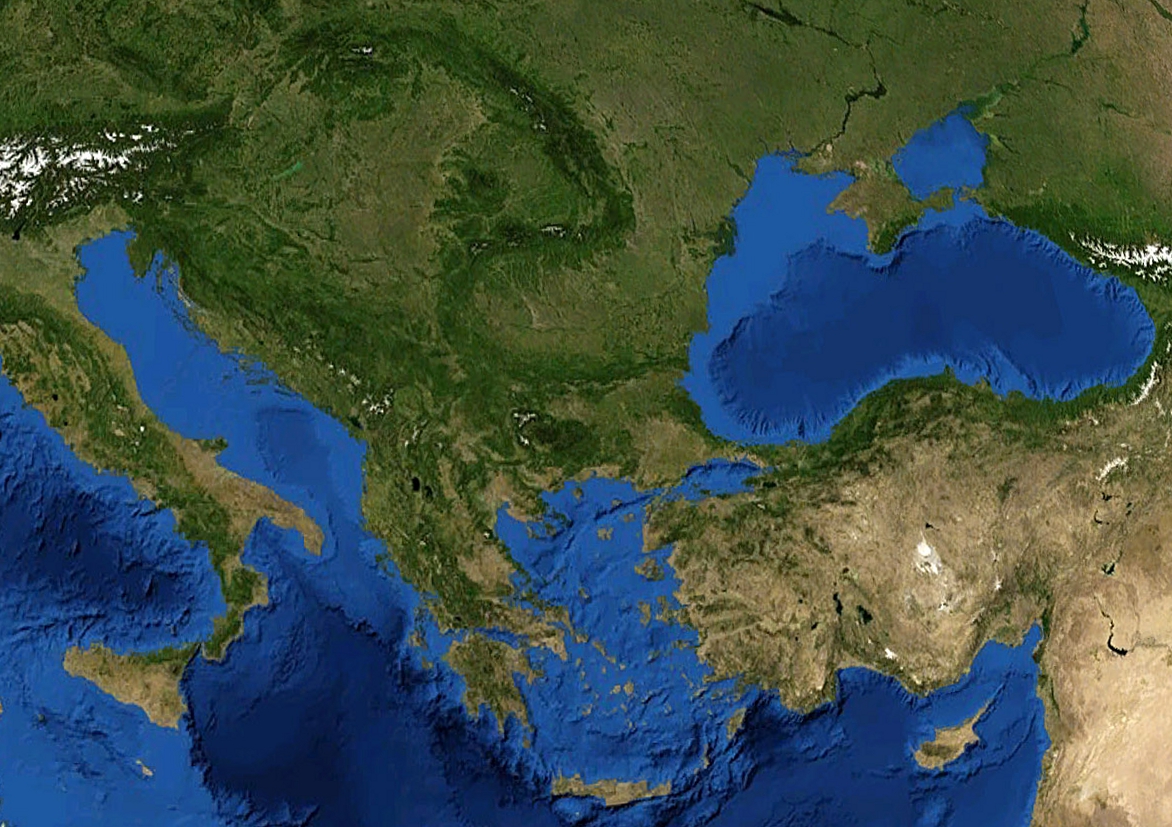A draft law foreseeing the punishment of the denial of the Armenian genocide allegations has been adopted by the French National Assembly on December 22nd. In order for the bill to become a law, it must also be adopted by the French Senate. Since the Senate is on holiday for Christmas and New Years, the earliest date which the bill could be addressed is the end of the first week of January. However, the general opinion is that the bill, which does not carry urgency, cannot be immediately examined and in fact, could even be taken to the agenda after the Presidential elections and maybe the Parliamentary elections to be held in June. Opposite to the opinion in Turkey, the adoption of the bill by the National Assembly has not been easy. Despite almost everyone in France believing that an Armenian genocide has taken place, there is no consensus on punishing its denial. With the idea that this prevents freedom of expression, an active group consisting of well known historians and intellectuals opposes these types of bills. In order to escape the opposition of parliamentarians having the same idea, brining this issue to the National Assembly right before the Christmas and New Years holidays have been sought and the day to discuss it has first been set as December 19, but for it to be more guaranteed, has been moved to December 22nd, two days before Christmas. Therefore, a group comprising a tenth of the Assembly and the majority of them being advocates of Armenians have adopted the bill with around 40 votes. Approximately ten parliamentarians have voted against. However, when considering that the law of 2001 which recognizes the Armenian genocide allegations was adopted by 52 votes and almost no one had opposed the bill, it could be seen that now, although small, there is a regression for the Armenians. On the other hand, this kind of game, which has been resorted to in order to prevent the majority of the Assembly to participate in the elections, has been criticized in some French newspapers. In the Assembly discussions, those advocating the Armenians have underlined the importance of the punishment of the genocide allegations deniers. However, besides a small number of articles found on the internet, it seems there is no one in France openly denying these allegations since other laws also provide punishment on this issue. In this situation, the scope of application of this draft law is very narrow; in other words, there is an attempt to adopt a law which prevents freedom of expression almost for no reason. When examining more closely, rather than punishing the small number of individuals denying the genocide allegations, it could be understood that the real aim of the militant Armenians in France is to support among public opinion their genocide thesis, which has become a part of their identities, to put Turkey, which is in definite rejection of this thesis, in a difficult position, to “win against” Turkey and therefore, to achieve some kind of psychological satisfaction. During the discussion of the bill in the French National Assembly, the rapporteur and other Armenian advocates have particularly underlined the following issues: First of all, as a result of some well known historians and intellectuals opposing the laws condemning some past events in France on the basis that it prevents freedom of expression, it is alleged that this bill is not a “memory law” and the main purpose of the bill is to apply in France the framework decision of the European Union which concerns racism and xenophobia. However, this is not the situation. By developing a concept of “genocides recognized by law in France”, it has also encompassed the 1915 events which have not been recognized as genocide by any international court. In short, this bill is not a “memory law”, but the law of 2001 which it is established upon is a memory law. The opposition of the historians and intellectuals which we have mentioned are quite important. If the bill is not adopted by the Senate, it will be owing to these historians and intellectuals rather than the objections of Turkey. Second of all, it has been put forth that this bill does not concern Turkey. This is also not true. The bill is based on the law of 2001 which officially recognizes the Armenian genocide allegations that Turkey has definitely rejected. Therefore, this bill which foresees the punishment of the denial of the 1915 events as genocide obviously concerns Turkey. During discussions in the Assembly, there has been a mention that Turkey has pressured France to prevent the bill becoming law and that it has threatened France with cutting off diplomatic relations and economic retaliations. Meanwhile, by expressing that the same threats were issued in 2001, but that in the following years trade between the two countries had increased, it has been mentioned that the same could also happen this time and therefore, Turkey’s reactions should not be overestimated. Two points draw attention here. The first is that in addition to the works of Turkey’s Ambassador to Paris for the bill not to be adopted, contacts of the Turkish parliamentary group and TUSIAD group have disturbed the Armenian advocates and these contacts have been considered as pressures. However, it is quite normal for Turkish officials and organizations to convey their views to the French officials and public opinion on an issue which directly concerns Turkey. The second point is that there is no reason for Turkey to repeat its hesitancy which it has shown in 2001 for enforcing economic measures on France. On the contrary, there are indications that if the bill is adopted in the Senate, Turkey will set restrictions on its economic relations with France without contradicting its international commitments. Meanwhile, in articles in the French press, among Turkey’s possible reactions after the adoption of the bill, it has been seen that the French are concerned the most regarding the economic ones. These concerns are reasonable considering the economic difficulties still experienced in France. The French Socialist Party is the architect of the law of 2001 concerning the recognition of the Armenian ‘genocide’ and the bill of 2006 in relation to the punishment of the denial of ‘genocide’. François Hollande, the presidential candidate of this Party is an individual who had stated in the previous years that Turkey could not become an EU member if it does not recognize the Armenian genocide allegations. However, the bill adopted on December 22’nd only being an initiative of the ruling party UMP has disturbed the Socialists and has created allegations that this bill is related to the upcoming elections. By indicating that they are against “memory laws”, some Socialist parliamentarians have already opposed the bill. It could be understood that during negotiations of the bill in the Senate, some Socialists will continue their opposition. On the other hand, it could also be seen that the adoption of the bill has created reactions among governmental ranks with Foreign Minister Alain Juppé, some ministers and parliamentarians being at the forefront. Regarding Turkey, the Government and ruling party have adopted an opposing stance towards this bill. On the other hand, the main opposition parties, MHP and CHP, have given their full support to the Government. By not following this national consensus, BDP has continued its stance of advocating the Armenians. However, since this party represents a small part of the Turkish Grand National Assembly with only 4%, it is not possible for this opposition to create any results. Similarly, the marginal stance of some writers and columnists known for their support of Armenian views and described as “liberal intellectuals” have become more evident opposite to the consensus mentioned above. For this reason, some of those writers, although having continued their genocide allegations, have also opposed the bill. Regarding Armenia, despite President Sarkisian officially conveying his gratitude to France for adopting the bill, it could be seen that the Armenian press has not showed much interest on this issue as expected. The situation is the same for the Diaspora press outside of France. It has also been seen that reactions against the bill are not only confined to Turkey and some politicians and media especially in Azerbaijan have criticized France. Objections have also been received from the Organization of the Islamic Conference and criticisms against France have emerged in Algeria. Regarding the European Union, by stating that the duty of the EU is not to write history, but to ensure compromise and the EU is a project aiming at peace, democracy, stability and prosperity in the continent, EU Commissioner for Enlargement and Neighborhood Policy Stefan Füle has indirectly criticized the bill. The possible consequence of the bill also being criticized outside of Turkey is that other countries will be less willing to adopt laws which punish the denial of the genocide allegations by following in France’s footsteps. After the adoption of the bill in the French National Assembly, Prime Minister Erdoğan has announced the first measure which will be taken against France. These cover an extensive scope from the withdrawal of the Turkish Ambassador to Paris to the suspending of political relations between the two countries and cancelling of all visits. Since there is yet no law which has been adopted and the adoption of the bill in the French Senate is not a guarantee, it could be seen that the envisaged measures are rather restrained at this stage. However, it is obvious that harsher measures will be taken if the bill is adopted by the Senate. In conclusion, it could be said that the first stage of adopting a law which punishes those denying the Armenian genocide allegations has been favorable to the Armenians in the French National Assembly. However, election considerations, Turkey’s strong reactions and the understanding that France’s interests in Turkey will seriously be harmed if the bill becomes a law and the bill preventing freedom of expression shows that it will not be this easy to obtain the same result in the second stage which is the Senate voting. In fact, it also shows that it is possible for the bill to be rejected or being hanged in midair.
© 2009-2025 Center for Eurasian Studies (AVİM) All Rights Reserved
ARMENIAN GENOCIDE FILMS FAIL TO WIN ACCLAIM
THE FAIRYTALES OF BOGHOS
DRAFT RESOLUTION ON “GENOCIDE” IN THE US SENATE
 A VIEW ABOUT 18TH MEETING OF SHANGHAI COOPERATION ORGANIZATION COUNCIL OF HEADS OF MEMBER STATES
A VIEW ABOUT 18TH MEETING OF SHANGHAI COOPERATION ORGANIZATION COUNCIL OF HEADS OF MEMBER STATES
 THE EU'S POLICY IS STARTING TO OVERLAP WITH PASHINYAN'S STANCE
THE EU'S POLICY IS STARTING TO OVERLAP WITH PASHINYAN'S STANCE
 ATTEMPTS AT DIASPORIZING TURKISH ARMENIANS - I
ATTEMPTS AT DIASPORIZING TURKISH ARMENIANS - I
 AN AREA OF GLOBAL COMPETITION: THE BALKANS
AN AREA OF GLOBAL COMPETITION: THE BALKANS




























